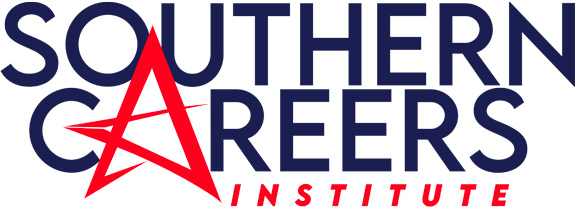Medical assistants are the unsung heroes of healthcare. They play a vital role in ensuring that medical facilities run smoothly, providing both clinical and administrative support. If you’ve ever wondered, “Where do medical assistants work?” You’re in for a treat. In this exploration, we’ll dive into the diverse settings where medical assistants thrive, focusing on the top five places they work. We’ll also delve into the top five benefits of pursuing a career as a medical assistant. So, let’s embark on this healthcare journey together.
Medical assistants are the heartbeat of healthcare facilities. They are skilled professionals who assist healthcare providers in delivering quality patient care. While they wear many hats, their primary goal is to ensure that medical practices run efficiently, and patients receive the care they need. But where do these healthcare heroes work? Let’s uncover the top five places where medical assistants can be found.
- Physician’s Offices
Physician’s offices are often the first place that comes to mind when thinking about where medical assistants work. In these settings, medical assistants serve as the right hand of healthcare providers. They greet patients, record medical histories, take vital signs, and prepare patients for examinations. They also assist with minor surgical procedures, administer medications, and manage medical records. Physician’s offices offer a friendly and collaborative atmosphere, making them an excellent choice for those who enjoy building relationships with patients and working closely with a small healthcare team.
- Hospitals
Hospitals are bustling hubs of healthcare activity, and medical assistants are an essential part of the team. In hospital settings, medical assistants often work in various departments, including emergency rooms, outpatient clinics, and surgical units. They may perform tasks such as drawing blood, collecting specimens, and assisting with patient admissions and discharges. Hospitals provide a fast-paced environment with exposure to a wide range of medical conditions and treatments, making it an exciting choice for medical assistants seeking diversity in their work.
- Urgent Care Centers
Urgent care centers are designed to provide immediate medical attention for non-life-threatening conditions. Medical assistants in urgent care settings play a crucial role in ensuring that patients receive prompt care. They triage patients, assist with diagnostic tests, and help with minor surgical procedures. The fast-paced nature of urgent care centers offers medical assistants the benefit of varied experiences and the satisfaction of addressing patients’ immediate healthcare needs.
- Nursing Homes and Assisted Living Facilities
Caring for our elderly loved ones is a noble endeavor, and medical assistants in nursing homes and assisted living facilities provide compassionate care to residents. They assist with daily activities, administer medications, monitor vital signs, and offer emotional support. Working in these settings allows medical assistants to build lasting relationships with residents and make a significant difference in their quality of life.
- Outpatient Care Centers
Outpatient care centers specialize in providing medical services without the need for hospitalization. Medical assistants in these centers assist healthcare providers in various specialties, such as orthopedics, cardiology, and dermatology. They help with patient examinations, perform diagnostic tests, and educate patients about their conditions and treatment plans. The benefit of working in outpatient care centers lies in the opportunity to gain expertise in specific medical fields and work with patients seeking specialized care.
Top 5 Benefits of Being a Medical Assistant
Now that we’ve explored where medical assistants work, let’s shift our focus to the top five benefits of pursuing a career in this rewarding field:
1. Job Stability
One of the most enticing aspects of a career as a medical assistant is job stability. The healthcare industry continues to grow at a remarkable pace. This growth is driven by factors such as an aging population, advances in medical technology, and increased access to healthcare services. As the demand for healthcare services rises, so does the need for skilled medical assistants. This translates to job security for those entering the profession.
Whether you’re in a bustling urban center or a quieter rural area, medical assistants are in demand. Healthcare facilities of all sizes, from small private practices to large medical centers, rely on their expertise. This widespread demand ensures a secure career path, providing peace of mind for individuals considering a career as a medical assistant.
2. Versatility
Medical assistants enjoy a remarkable level of versatility in their careers. Unlike many healthcare professions that are specialized and limit professionals to a specific area of expertise, medical assistants have the flexibility to work in various healthcare settings. This versatility allows them to explore different aspects of healthcare and find a niche that aligns with their interests and skills. For example, a medical assistant might begin their career in a busy physician’s office, where they gain experience in patient care and administrative tasks. As they gain expertise, they may choose to transition to a specialized clinic, such as a dermatology or cardiology practice. This flexibility ensures that medical assistants can adapt to changing interests and career goals while remaining valuable assets in the healthcare workforce.
3. Quick Entry into Healthcare
Compared to many healthcare professions that require extensive education and training, becoming a medical assistant is a quicker path into the healthcare workforce. Most medical assistant programs can be completed in one to two years, depending on the program’s duration and the individual’s prior education. This means that individuals can enter the healthcare job market sooner and start making a meaningful difference in patients’ lives. The relatively short educational path doesn’t compromise the quality of training. Medical assistant programs are designed to provide comprehensive knowledge and practical skills. Graduates are well-prepared to take on the responsibilities of their role, from performing clinical tasks to managing medical records. This swift entry into healthcare is particularly appealing to those who are eager to begin their healthcare careers promptly.
4. Personal Fulfillment
One of the most rewarding aspects of being a medical assistant is the personal fulfillment it brings. Medical assistants have a direct impact on patients’ lives. They provide care, comfort, and support during times of illness and vulnerability. This hands-on interaction allows medical assistants to witness the positive outcomes of their work firsthand. Medical assistants often form strong bonds with patients, especially in settings like primary care offices where they see patients regularly. These relationships contribute to a sense of fulfillment and purpose in their work. Knowing that they are making a positive difference in patients’ well-being is deeply gratifying and fuels their commitment to the profession.
5. Continuous Learning
The healthcare field is dynamic and ever-evolving, and medical assistants have ample opportunities for continuous learning. This is a profession where curiosity and a commitment to staying current are highly valued. Medical assistants are at the forefront of healthcare delivery, and their roles may evolve with advancements in technology and changes in healthcare practices. Continuous learning can take various forms for medical assistants. They may receive on-the-job training to become proficient in new procedures or technologies. Many medical assistants pursue additional certifications to expand their skills and increase their career opportunities. Some even choose to pursue advanced degrees to transition into roles such as nursing or healthcare administration.
The healthcare landscape is constantly changing, and medical assistants are well-positioned to adapt and thrive in this dynamic environment. They have the opportunity to deepen their knowledge, refine their skills, and remain at the forefront of healthcare innovation throughout their careers.
Exploring SCI’s Medical Assistant Program
As you explore the exciting world of medical assisting, consider enrolling in SCI’s comprehensive Medical Assistant program. We are committed to providing top-notch education that equips you with the skills and knowledge needed to excel in this fulfilling career. Here’s why SCI’s program stands out:
- Hands-On Training: Our program offers hands-on training that simulates real healthcare settings. You’ll gain practical experience in vital tasks like taking vital signs, performing EKGs, and administering medications.
- Experienced Instructors: Learn from experienced instructors who are passionate about helping you succeed. They provide guidance and mentorship throughout your journey.
- Externship Opportunities: SCI partners with various healthcare facilities, giving you the chance to gain real-world experience through externship opportunities.
- Certification Preparation: We prepare you for industry-recognized certifications, such as Certified Medical Assistant (CMA) and Registered Medical Assistant (RMA), making you a highly qualified candidate in the job market.
- Job Placement Assistance: Our support doesn’t end with graduation. We offer job placement assistance to help you kickstart your career as a medical assistant.
Your journey as a medical assistant starts here, at SCI. Join us in making a positive impact on the world of healthcare.
Conclusion
In the world of healthcare, medical assistants are the unsung heroes who contribute to the well-being of patients and the efficient operation of medical facilities. Their roles are diverse, and they can be found in physician’s offices, hospitals, urgent care centers, nursing homes, and outpatient care centers. Each of these settings offers unique experiences and opportunities for personal and professional growth.
Choosing a career as a medical assistant comes with a host of benefits, including job stability, versatility, quick entry into healthcare, personal fulfillment, and opportunities for continuous learning. Whether you’re just beginning your journey in healthcare or considering a career change, becoming a medical assistant opens doors to a rewarding profession filled with diverse opportunities to make a positive impact on patients’ lives.
So, the next time you visit a healthcare facility, take a moment to appreciate the medical assistant who plays a crucial role in ensuring your care is delivered with efficiency, compassion, and expertise. Where do medical assistants work? They work wherever there’s a need for quality patient care and a dedication to improving lives in the world of healthcare. Your journey as a medical assistant has just begun, and the possibilities are endless. Join SCI’s Medical Assistant program and forge a path to a rewarding career in healthcare.
This article was published on: 10/18/23 2:01 PM
* SCI does not guarantee employment or a starting salary upon graduation, completion, or withdrawal from SCI. As an accredited post-secondary institution, SCI has various federal financial assistance programs available for students who qualify and are enrolled in SCI programs. This does not apply to seminar students.
GI Bill® is a registered trademark of the U.S. Department of Veterans Affairs (VA). More information about education benefits offered by VA is available at the official U.S. government Web site at http://www.benefits.va.gov/gibill.

